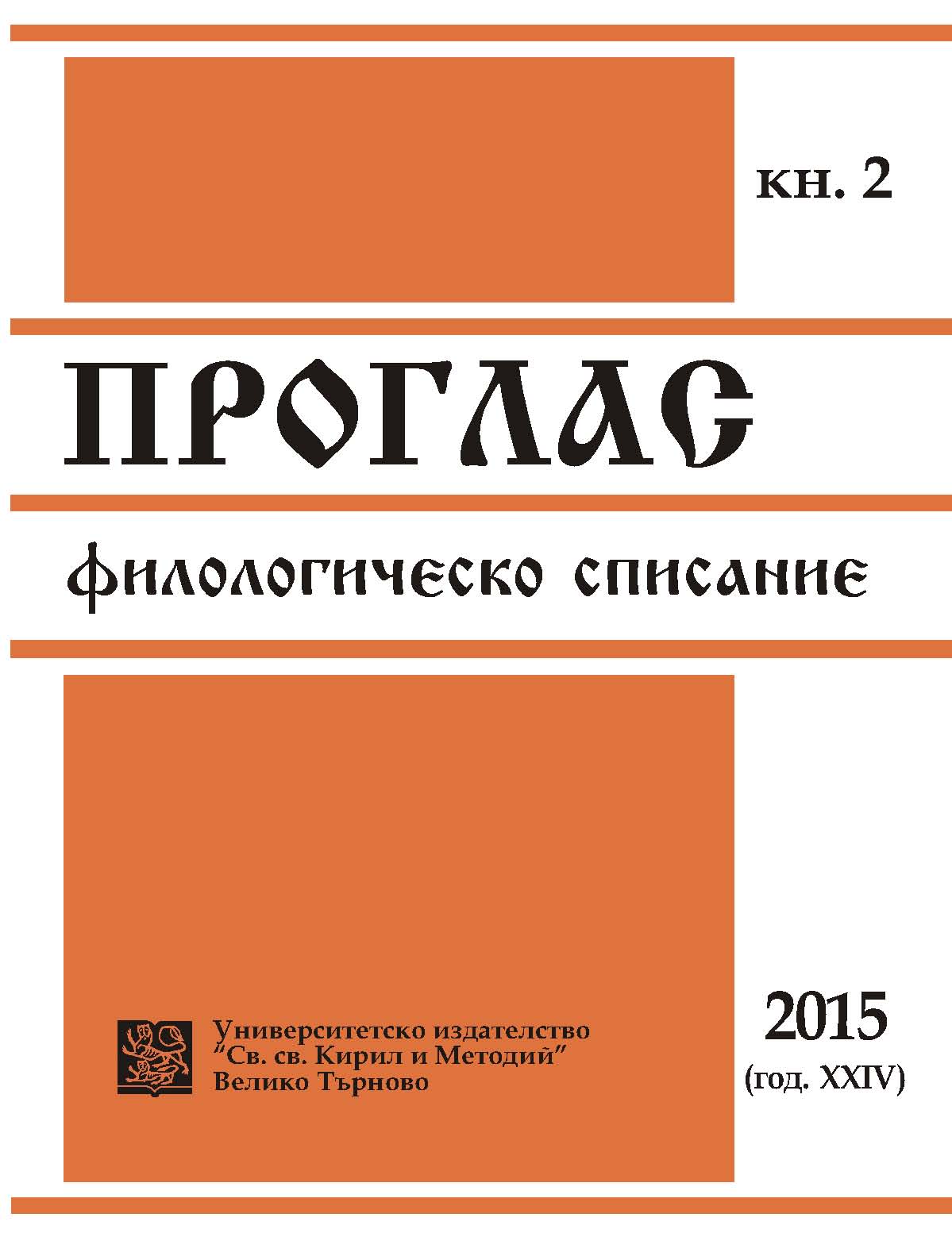
We kindly inform you that, as long as the subject affiliation of our 300.000+ articles is in progress, you might get unsufficient or no results on your third level or second level search. In this case, please broaden your search criteria.

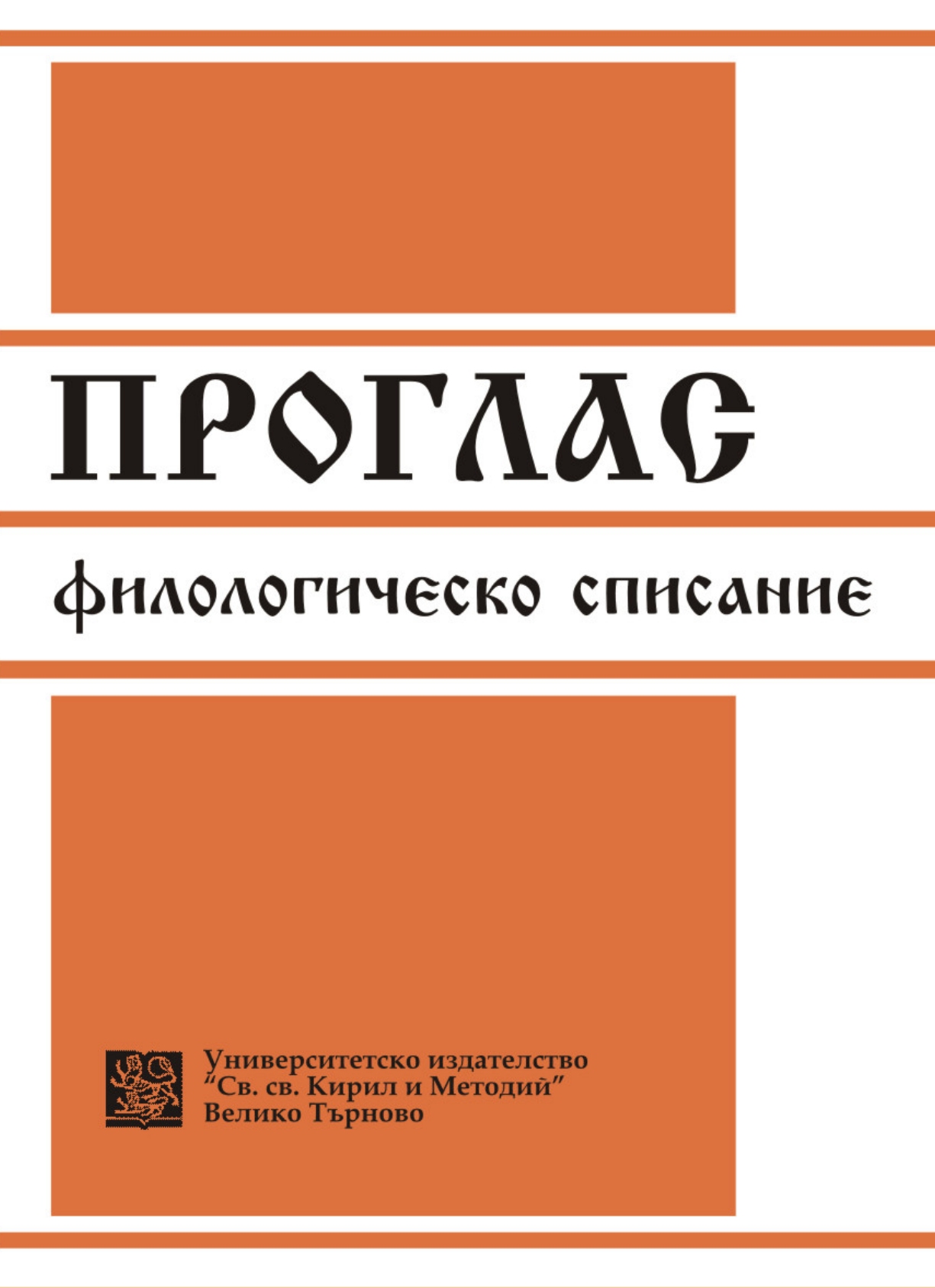
The paper deals with some of the boundaries of the Compound Verbal Predicates in Bulgarian language whose first component is expressed by an impersonal verb (the second component can be expressed either by a form of a personal verb, or by a form of an impersonal verb or a personal verb with an impersonal usage). The starting point from which we proceed is that any combination consisting of two verb forms (linked together by the linguistic element да in Bulgarian), the first of which is a form of an impersonal verb, functions in the sentence as a Compound Verbal Predicate in the Bulgarian language. To establish such a Predicate, it is essential to prove that its first component is expressed by a form of an impersonal verb.
More...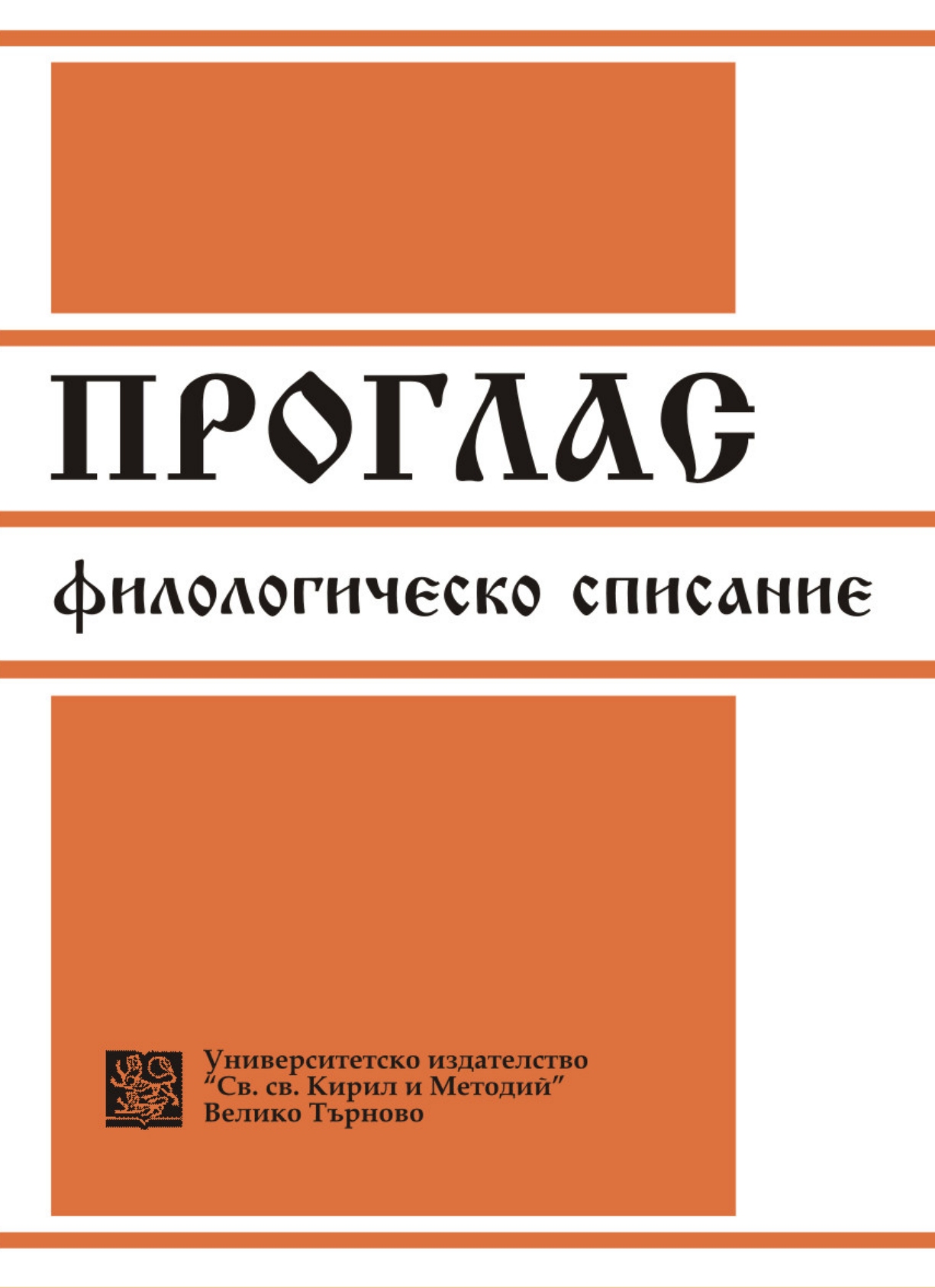
The text discusses the first application of the Transformational-Generative Grammar (TGG) to Bulgarian language in a 1963 paper by Hilmar Walter. The role of this paper is outlined within the general reception process of TGG from American into Bulgarian linguistic practice by analyzing the factors determining the indirect reception via German mediation. In addition, some main reception features of H. Walter’s paper have been considered, that have played a leading role in Bulgarian reception of generative grammar in general. Special emphasis is laid on the repercussion of the pioneering paper in Bulgarian linguistic circles.
More...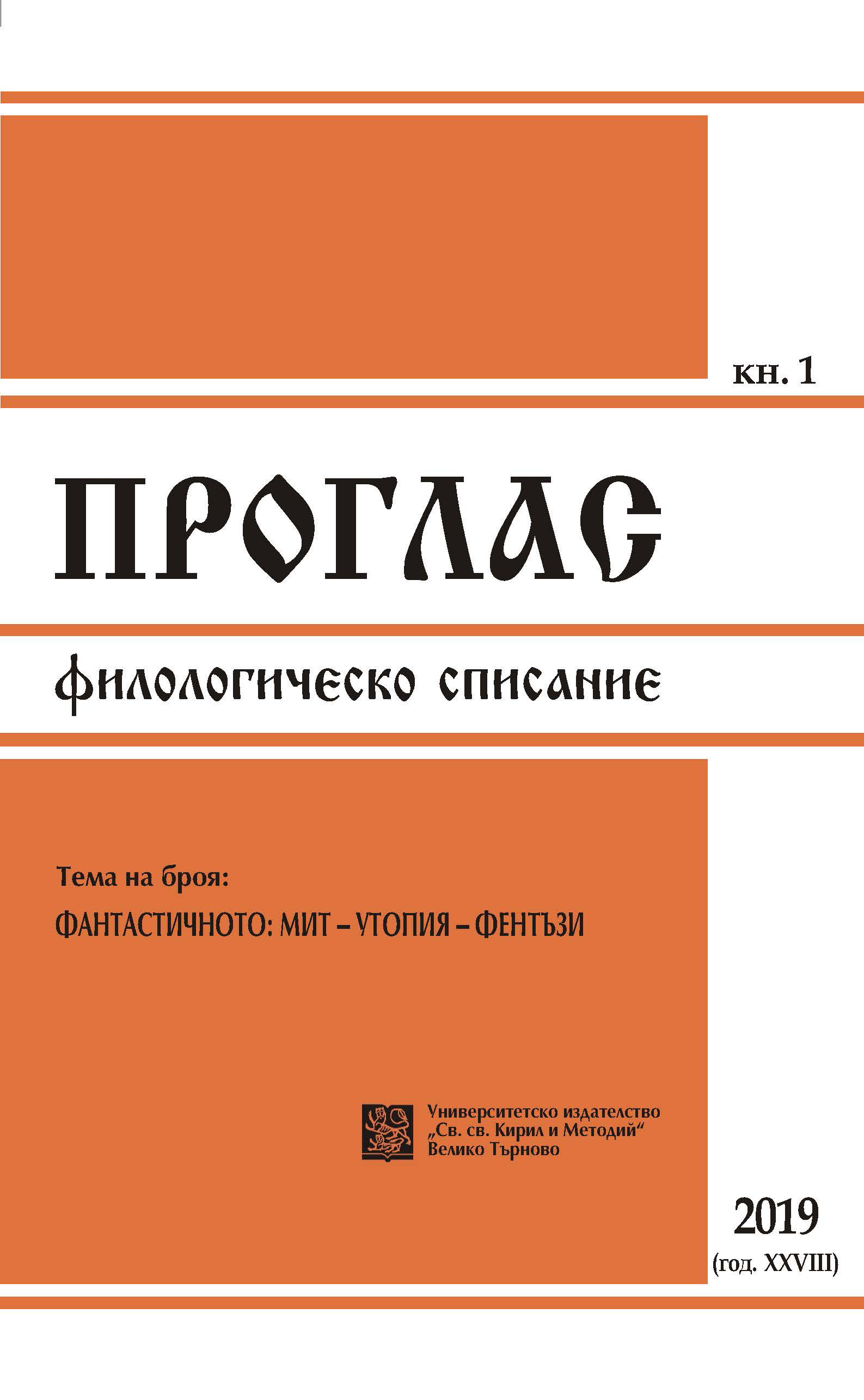
This article critically reviews the ways in which the grammatical relation between the units of appositional constructions have been interpreted and conceptualized in Russian linguistics. The paper considers four distinct perspectives, each of which represents a principal claim: 1) Theories based on the traditional view of the grammatical relation; i.e., the appositive and the head are in a hypotactic relationship. 2) Theories proposingthat the grammatical relation is coordination. 3) Theories stating that the grammatical relation is neither coordination nor subordination. 4) Theories advancing the view that the grammatical relation has a hybrid nature; i.e., it is a symbiosis of distinctive features both of coordination and subordination. The second part of the paper explores the third and the fourth group of theories.
More...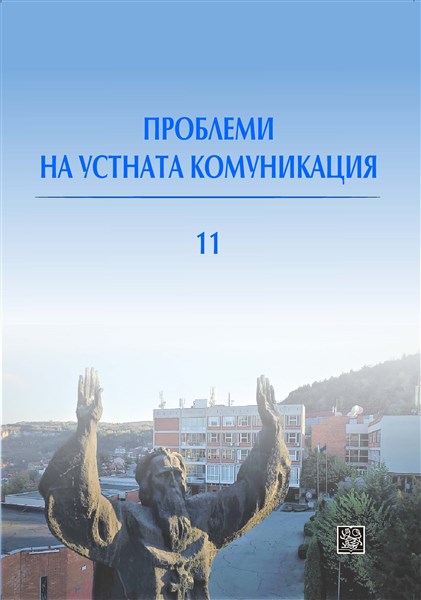
The paper examines the system of future tenses in Bulgarian as part of the morphosyntactic specificities of the Balkansprachbund. A hypothesis is presented that there exists a Balkan center of future tenses – from Byzantine and Modern Greek to Bulgarian (including Macedonian), Serbian and Croatian, up to Slovene, where the future tense is formed by the verb to be. However, Bulgarian has indeed the largest number of future tense paradigms. Some verb forms in contemporary Bulgarian originate from Old Bulgarian. This is valid for both – synthetic and analytic forms. At the same time, some verb forms result from an influence by other Balkan languages, e.g. the adstrat languages like Balkan Romance or Balkan Greek, and a superstrat language like Turkish.
More...
The paper aims at presenting the history of the Bulgarian linguistic thought on the status of word groups consisting of an appositive and a nominal it modifies. The research focus is laid on the multitude of ways authors interpret both grammatical relations between the components of the analysed word groups and the syntactic connections by means of which such relations are realized. While in the past the main problem had to do with mixing of detached secondary parts and the apposition, at present studies focus on the difficulty of identifying the syntactic functions of the components in the appositive word group. The main reason for such an ambivalent identification is that sentence components, which differ both semantically and morphologically, are defined as appositions without applying any sound criterion.
More...
The paper discusses the intonation contours of the complex sentences with subject clauses in Bulgarian. It shows that there exists partial similarity between the intonation contours of some complex sentences with subject clauses and with modifier clauses. A conclusion is made that when the subject clause is introduced by the relative „който“ (“who”), in the intersentential area between the two sentences a pause occurs that probably marks the missing subject. In cases when the subordinate clause is postpositioned and introduced by the subordinators „да“ (“to”), „че“ (“that”) and „как“ (“how”), the whole complex sentence is formed as a one-component phrase and pronounced without a pause.
More...
The article examines some of the most typical syntax structures in Bulgarian colloquial speech – those with omitted elements. Although the elliptical utterances are found in examples of literary language too, the loss of syntax units can be definite as mostly colloquial phenomenon.
More...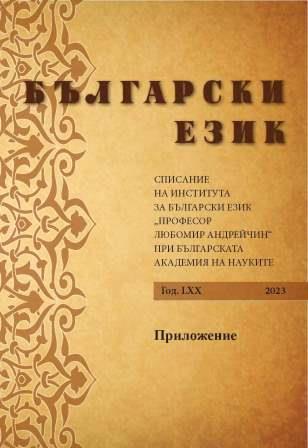
We examine the semantic and syntactic properties of Bulgarian modal and phase verbs in order to determine whether they form a complex predicative unit with the verb they attach to or constitute a separate one. The answer to this question allows for an adequate classification of the verbs under consideration. Furthermore, we describe the syntactic structures with equivalent subjects in the main and subordinate clauses.
More...
The aim of the study is to answer the question whether impersonal-predicative words may be considered as an independent word class (part of speech). I present a summary of the views on the morphological status of these lexemes based on the study of the characteristics of impersonal-predicative words. In the search for arguments that their constitution as a separate part of speech is not linguistically founded, I consider the heterogeneous makeup of the category, the syntagmatic properties of these words, their (lack of) autonomy and lexical combinability with other language units. The communicative-pragmatic aspect (context and spoken language as factors) is also taken into consideration, as far as the impersonal-predicative nature and the semantics of these words is realised at the sentence and text level.
More...
Multiword prepositions (MPs), such as по отношение на (with regard to), независимо от (in spite of), are a relatively new addition to the Bulgarian lexical system. Although integrated in the fully-fledged standard variety of the language, descriptive grammars fail to offer a unified understanding of their nature. Some authors regard MPs as lexemes, members of the class of prepositions, while others treat them as phrasemes or ignore them altogether. There is no consensus with respect to the number of MPs or the representative patterns of word combination that constitute MPs, except for (p1) N p2 and Adv p. The discrepancies in defining the differentia specifica of this particular set of multiword expressions are not surprising, given the different stage of lexicalisation (grammaticalisation) and the variety of approaches applied to the study of MPs over time. This study aims at offering an overview of the evolution of the conceptual basis for the description of MPs in three types of resources: grammars, publications dealing with this subject and some of the major Bulgarian lexical resources. I pay special attention to the criteria related to lexicalisation, which in most cases originate in the Russian grammatical tradition, or reflect some of the more recent achievements in computational linguistics.
More...
This paper focuses on the prosodic and intonation features of question words in simple and complex sentences, as well as on the differences in prosody and intonation of these words when functioning as different parts of speech (e.g. who came (who = N) and which person (who = A). The study of this topic is significant, as it sheds light on the prosodic and intonation correspondences in question-answer sentence pairs, as well as on the distinctive intonation of words capable of performing different functions in the sentence structure.
More...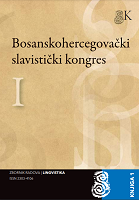
The paper deals with the nominal derivatives formed by suffixation (suffixes -(a)c, -l(a) c, -telj, -v(a)c) in Voltić’s Ričoslovnik iliričkoga, italijanskoga i nimačkoga jezika (Vienna, 1803). Suffixation is the most productive way of word formation in nouns. This has also been confirmed by Voltić’s corpus. The majority of these derivatives are old and expected and Voltić has taken them over from the language as such, but they have also served him as a model for the formation of new words. These new derivatives will be analyzed in this paper. Special attention will be paid to the analysis of unusual derivatives, i.e. to cases in which we find some typical suffixes in special realizations, i.e. those formational models which are unusual because of the meaning of the derivative. Attention will also be drawn to derivatives formed by adaptation of the foreign model, primarily Italian and German. The analyzed examples will be determined according to their confirmation mostly in comparison with Rječnik hrvatskoga ili srpskoga jezika JAZU.
More...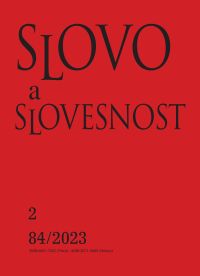
The study proposes that some words in Czech, including ‘navzdory’ ‘despite’ and ‘počínaje’ ‘starting from,’ should be treated as ambipositions, i.e., adpositions that may either precede or follow their complement. This avoids the awkwardness of the traditional view on which the former, for instance, is a preposition when preceding a complement and a homonymous adverb when following one. Based on 3,234 corpus instances of ‘navzdory’ ‘despite,’ ‘nevyjímaje’ ‘including,’ ‘nemluvě o’ ‘not to mention,’ ‘počínaje’ ‘starting with,’ ‘konče’ ‘ending with,’ and ‘počínaje – konče’ ‘from – to,’ the study examines the factors determining whether ambipositions in Czech precede or follow their complements. Special attention is paid to the length and the syntactic complexity of the complement, but also to the text type and the position of the adpositional phrase in the clause. The study uses the random forests algorithm to gauge the relative importance of the variables for each of the ambipositions examined. The length of the complement is systematically the best predictor of the position of ambipositions: the longer the complement, the more likely the ambiposition is to precede it. This is argued to follow primarily from the limits of the human working memory.
More...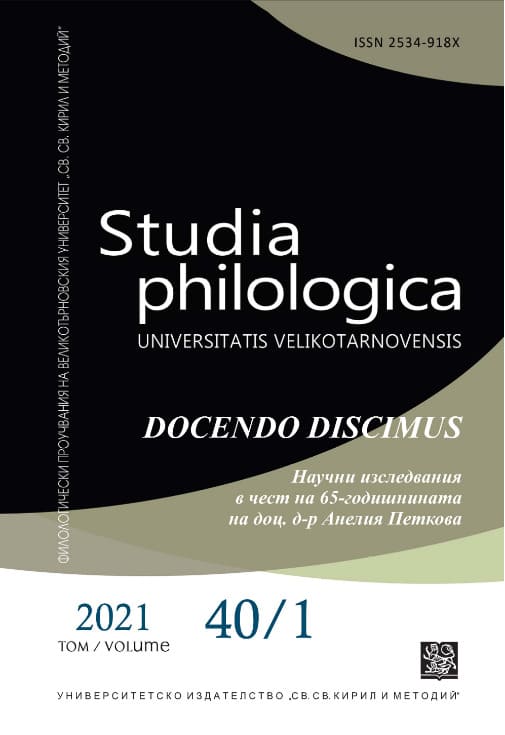
Based on extensive materials from Bulgarian advertising, the article analyses the new functions and specific use of the preposition “without” in semantic-syntactic and stylistic terms. The frequency of its use is related to the presence of prepositional-noun combinations, emphasizing the lack of something like an argument for using the respective product. The importance of this new function ‚for indicating what is not contained or what is absent in something‘ in advertising texts is emphasized through various techniques: font and color, the regular use of capital letters, the paragraphing of the text, etc., as well as through language games.
More...
The article explores the possibility (but also the need) to analyze the syntactic functions of the components of the anthroponymic composite in the Bulgarian name system. This study does not focus so much on pseudonyms and nicknames since their function of appositives to the formal anthroponym has long been studied and is considered a priori accepted. The emphasis is primarily on surnames (father’s names and family names). They have not yet received due attention in terms of their syntactic potential, which certainly goes beyond their attributive characteristics. The article also proposes some significant terminological clarifications in regard to the terms that are traditionally used to designate the components of the anthroponymic composite in Bulgarian language.
More...
In this presentation we will try to focus on certain linguistic features of agglutinative languages as compared to English with regard to the so-called “extralinguistic reality” relying on previous data by both sociolinguistic and psycholinguistic research, but also on certain philosophical thoughts related to language. In order to reach our objective we are going to focus on two well-known linguistic phenomena, language fiction and linguistic image, which, although studied since the beginning of the previous millennium, remain unbeaten paths in linguistics. Their study reveals information about certain etymological roots and, first and foremost, aims at helping linguists to know better the above-mentioned languages and use the respective characteristics of the grammatical structures, but also, aims at helping translators in their difficult task of transmitting the different works not only as regards the rendering of the text from one language to another but also cutting through the dark tunnels of the history linking the different cultures. We will support our stance by giving examples of phraseological, idiomatic and syntactic phrases which properly express history and culture, therefore the inheritance of the national mentality of different nations and linguistic communities.
More...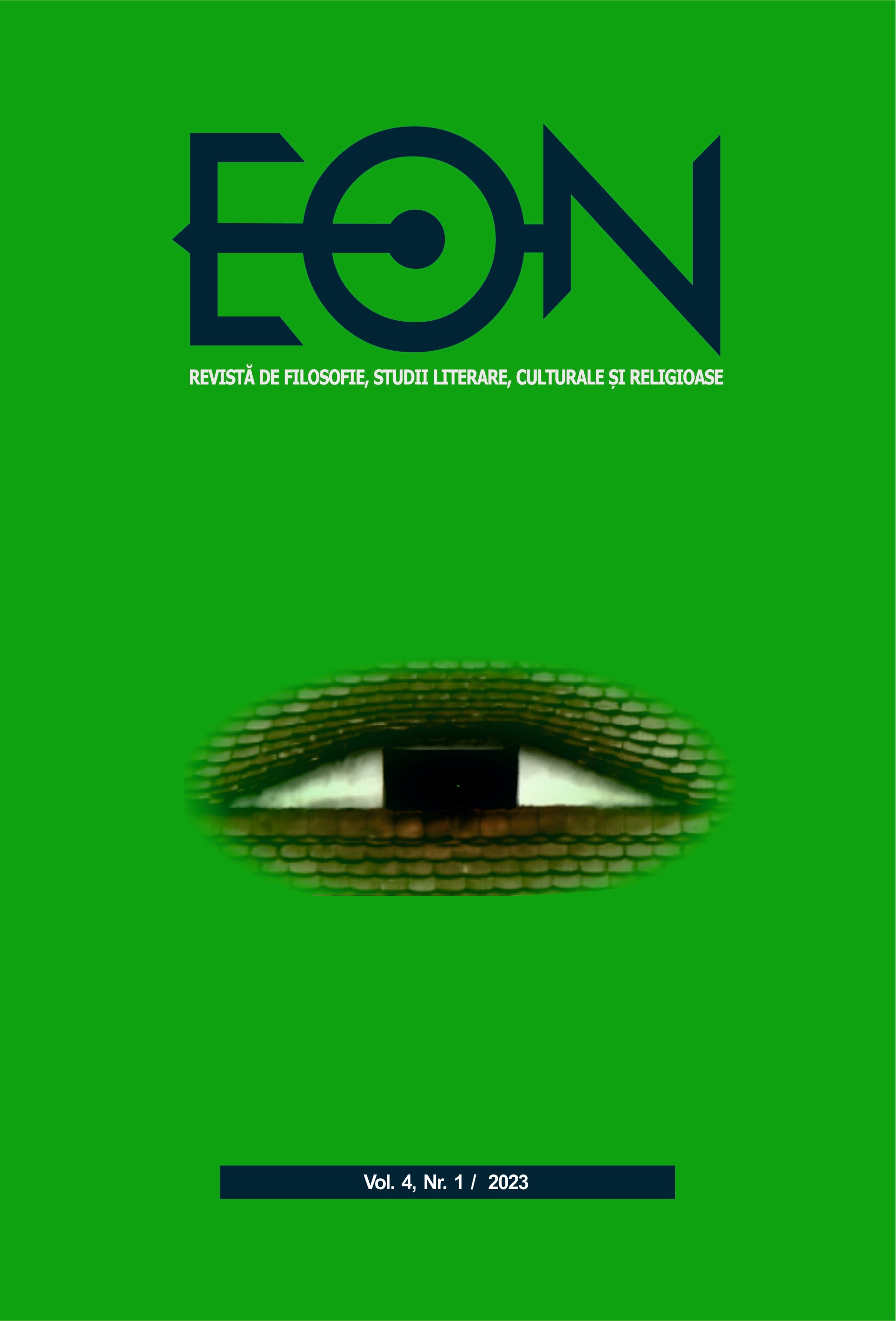
This paper aims at presenting some aspects regarding the history of a controversial syntactical concept, i. e. the syntagm, as it is presented in foreign (Russian, French etc.) and Romanian grammars and Schools of grammar (notably, Iași, București and Cluj). In this study, we adopt only the definition given by the Cluj School of grammar, i.e. a group of two terms and the relation between them. Therefore, the syntagm is a relational unit, based on a relation, and not a unit in relation.
More...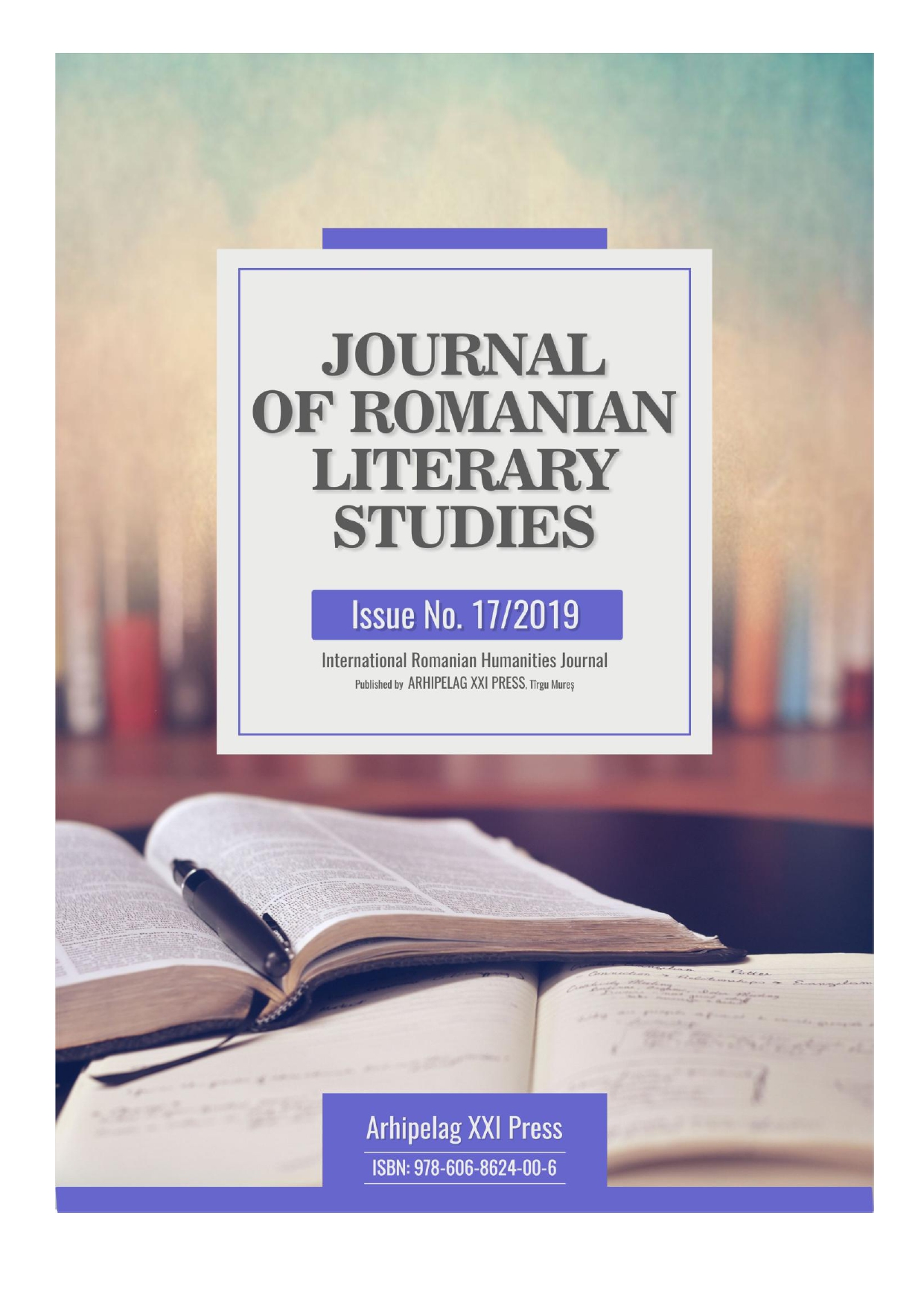
This article sets out and discusses, in relation to the current Romanian language, a set of peculiarities related to the sentence syntax encountered in Manuscript 67 at the Library of the Romanian Academy in Bucharest. It contains the entire Slavonic translation of Ithica Ieropolitica by the Archbishop of Putna Monastery, Vartolomei Măzăreanu, in 1764. The theoretical reflection in this article is based on our own interpretative transcription activity in Latin alphabet, taking into account the current orthographical rules, of the text Ithica Ieropolitica, written in Cyrillic script by the scholarly monk V. Măzăreanu. There are presented the syntactic characteristics existing in the text, considering their correlation with the degree of evolution of the syntax of the Romanian language in the XVIII-th century. It has thus been observed that Ithica presents many elements that constitute a norm in the present literary language, but also preserves elements specific to the ancient Romanian language.
More...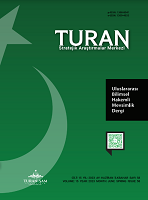
Hadith commentary (sharh) books aimed to examine and explain hadiths in many ways that can be evaluated in linguistics such as Gharib al-hadith, Fiqh al-hadith, Fiqh al-luga, Belagah and especially ılm al-ishtiqaq and ılm al-ma’ânî. Etymology and semantic sciences, within the understanding of today’s linguistics, are the subject of determining the first meanings and roots of the words and explaining what meanings they are used in the process they have passed through, together with other concepts that can express the same meaning. al-Munziri one of the hadith imams, sometimes includes etymological explanations by going down to the root of the words in his commentary book named al-Iddu’l-Mawrud. sometimes he deals with different semantic approaches and explains after which meaning changes a word with a certain root reaches the meaning used by the Prophet. He makes these analyzes fort he great purpose of understanding the sunnah of the Prophet in the most accurate way, and in this respect, he sheds light on the whole world of Islamic sciences.
More...